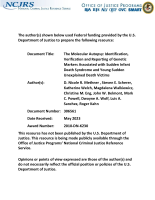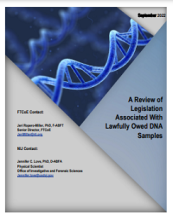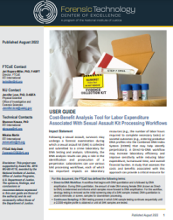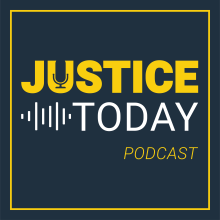The Molecular Autopsy: Identification, Verification and Reporting of Genetic Markers Associated with Sudden Infant Death Syndrome and Young Sudden Unexplained Death Victims
Date Published
2023
Agencies
NIJ-Sponsored
Publication Type
Research (Applied/Empirical)








